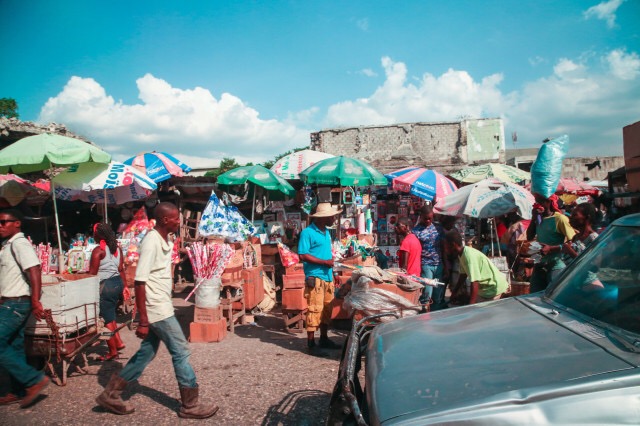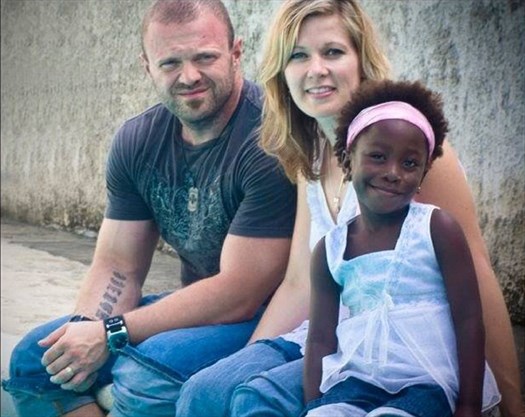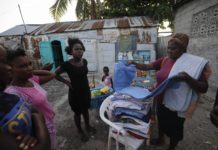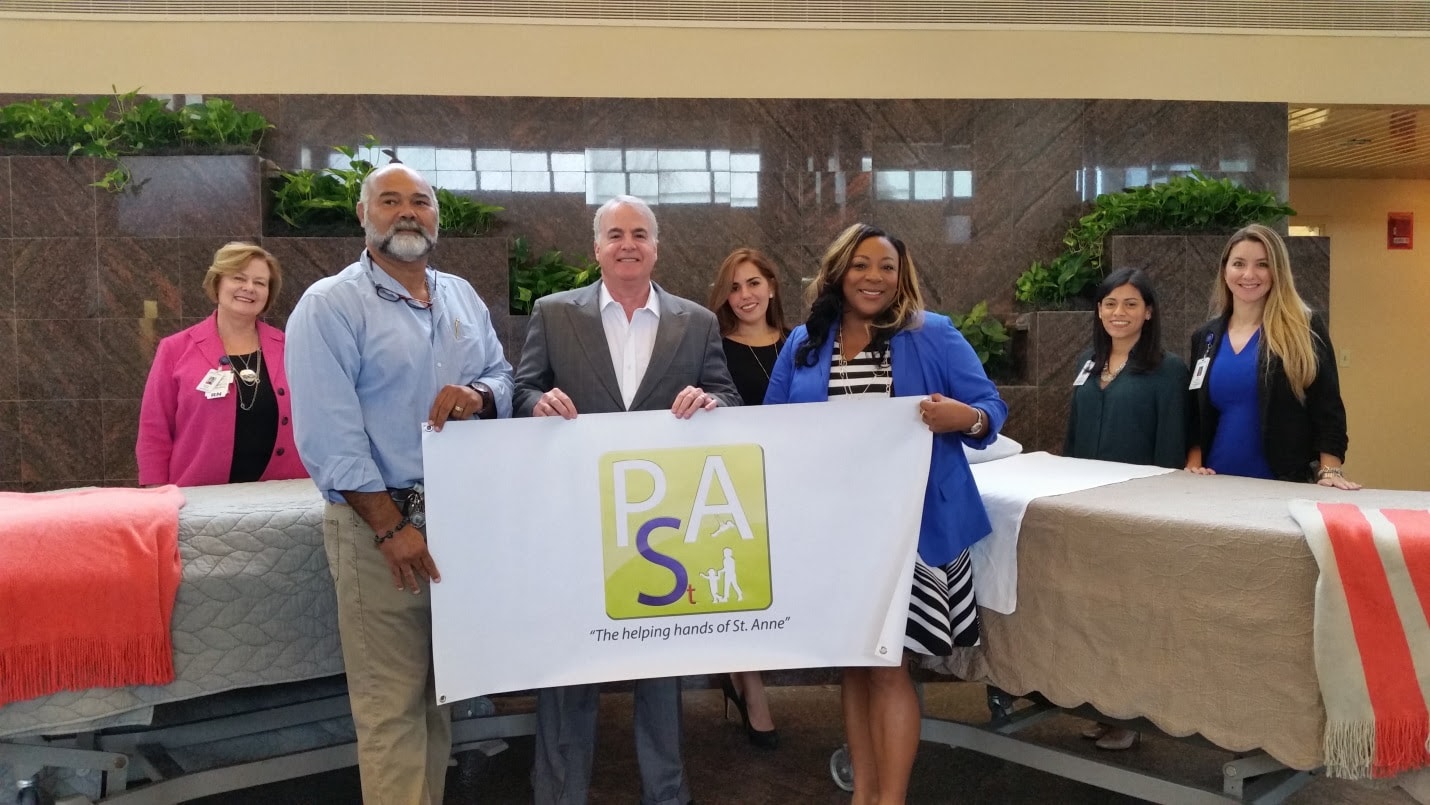By David Henderson
In December, then United Nations Secretary General Ban Ki-moon delivered a carefully scripted speech on the UN’s role in Haiti’s cholera epidemic. As a young adult splitting my time between studying towards a degree in Global Health and working remotely for a medical clinic in Haiti, I spent the afternoon alone with my computer, gripped by a livestream of Ban’s address.
After six years of denial, Ban admitting the UN’s guilt in introducing cholera to Haiti would have been a massive step towards justice for the patients I serve, and the Haitian friends my family holds dear (my parents have worked as missionaries in the country for over 25 years). But, Ban refused to do so. Instead, he offered up a $400 million plan to fight cholera and assist its victims in Haiti. To date, the UN has raised a meager $2 million to fund this plan.
When the first outbreak of cholera appeared in October 2010, I, like many, could only watch from the United States in despair. Initially, I simply donated to anti-cholera vaccination efforts, but more recently I’ve worked for organizations striving to fight cholera in Haiti, interning at Partners in Health and eventually taking a job with IDADEE Health Center in Cap-Haitian.
In the past 6 years, cholera has become a normal part of my life and work. Outbreaks have continued to resurface regularly. This can feel unremarkable, the natural order of things.
But there is nothing natural about Haiti’s cholera epidemic. Immediately after the disease spread, journalists and local Haitians traced the outbreak to a Nepalese UN base, and their suspicions were confirmed when the strain running rampant in Haiti, which had never been seen in the country before, turned out to be a strain commonly found in Southeast Asia.
Eventually, the UN commissioned an official report on the epidemic, which confirmed the overwhelming evidence that cholera had emanated from the base. Yet, the report blamed a “confluence of factors”, including Haitians’ bathing and farming practices, for the epidemic. Its authors concluded that the epidemic was “not the fault of… a group or individual”, an absurd assertion given that cholera had not even existed in Haiti until a group of Nepalese UN troops contaminated the Artibonite River with their fecal waste.
The report was just the first of many UN efforts to save face without actually accepting responsibility for the outbreak. For six years, the UN has continued its scramble to deflect responsibility while the death toll in Haiti has continued to climb, reaching approximately 10,000 people.
In August 2016, Ban Ki-moon publicly broached the topic of UN guilt for the first time, admitting that the UN had a “moral responsibility” to commit to fighting the disease. But, Ban did not admit UN troops were to blame for causing the epidemic.
In his speech on Thursday, Ban continued to dance around a long-overdue mea culpa. Instead of admitting guilt for causing the epidemic, Ban lamented that the UN “simply did not do enough with regard to the cholera outbreak and its spread in Haiti.” Ban announced the UN was “profoundly sorry” for the suffering caused by the outbreak, and for the UN’s “role” in the tragedy. Never did Ban note precisely what the UN’s role was, namely, introducing the disease which killed 10,000 Haitians as a result of negligent waste disposal practices.
While Ban’s remorse was evident, his speech was carefully crafted to avoid actually admitting guilt. By hinting that the UN regrets bringing cholera to Haiti, without admitting they did so, Ban acknowledged that everyone listening already knew the UN brought the disease to Haiti. Yet, he refused to say it; Doing so may have hurt the UN’s ability to insist that they are not legally responsible for the deaths cholera has caused.
Being held legally responsible could prove costly–paying compensation to the families of victims would cost roughly $40 billion, per a confidential UN report. Accordingly, despite his talk of “moral responsibility,” Ban avoided saying anything that could force the UN to shoulder actual, legal responsibility.
Instead, Ban sought to make up for the UN’s introduction of the disease by announcing a plan to spend $200 million fighting cholera and dedicate another $200 million to “material assistance” for communities and families affected by the epidemic. While the sums are substantial, these pity payments are essentially bribes: The UN hopes the international outcry and onslaught of lawsuits being brought against them will cease with a little money to a few communities and a half-hearted gesture towards regret.
At first, this strategy worked–most media outlets framed Ban’s speech as an admission of guilt, and many took to social media to celebrate the UN’s strides towards “justice”.
But the onlookers who welcomed Ban’s speech and the aid package as satisfactory sent a chilling message to Haitians, including my friends and coworkers: that their lives aren’t worth a compensation payment, or even an honest apology.
After hiding behind a weak apology, the UN, now under the leadership of Secretary General Antonò Guterres, is beginning to show its true colors once again: The UN has raised a pathetic $2 million out of the $400 million it needs to carry out its cholera plan: a mere 1/200th of what Ban promised. Fortunately, news outlets, like The New York Times, are catching on.
But even if the plan were fully financed, its execution wouldn’t represent justice. After all, criminals aren’t typically allowed to take stock of their level of “moral responsibility,” then determine an appropriate level of compensation to pay their victims.
Justice will only be served when the UN, an organization that exists to promote human rights around the globe, admits responsibility for causing the epidemic, pleads guilty in a court of law, and compensates Haitians. If every person is a person, we should accept nothing less than court-mediated justice.
Haitiantimes.com





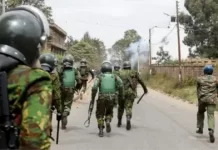























![Phyllisia Ross – KONSA [Official Music Video]](https://haitiville.com/wp-content/uploads/2014/08/phyliisia.jpg)

